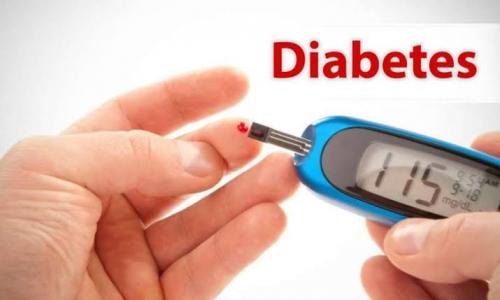Table of Content
Diabetes is a disease that occurs when your blood glucose is too high. Blood glucose comes from the food that we eat and it is our main source of energy. Insulin, a hormone made by the pancreas, helps glucose from food get into the cells of our body to be used for energy. Sometimes our body doesn’t make enough insulin or doesn’t use insulin well leading to glucose staying in blood and not reaching body cells. So now we know how important insulin is for our body to transfer food into our body cells which further transforms to energy.
Warning signs:
- sores that do not heal
- fatigue
- increased thirst and urination
- increased hunger
- blurred vision
- numbness or tingling in the feet or hands
- unexplained weight loss
Types of Diabetes:
Type 1: It occurs when the immune system of our body attacks and destroys the insulin-producing beta cells in pancreas which prevents glucose of food to enter your body cells and thus it remains in your blood leading to diabetes. According to scientists, other factors such as genes and environmental factors like viruses might trigger the disease.
Type 2: It is the most common type of diabetes which is caused by factors such as poor lifestyle and genes.
- Physical inactivity and Obesity
It is more likely to be developed if you are not physically active and are overweight or obese. Extra weight is common in people with type 2 diabetes and sometimes causes insulin resistance. One should keep in mind the location of body fat. Extra belly fat is linked to insulin resistance, type 2 diabetes, and heart and blood vessel disease. You should keep a track of your Body Mass Index chart if you suspect the symptoms.
- Insulin resistance
It occurs when muscles, liver and fat cells do not use insulin well produced by the pancreas. It leads to the prevention of glucose from entering the cells. The body cells then demand glucose and the pancreas keeps developing more insulin to meet this demand. Over time, the pancreas stops producing the required amount of insulin and the glucose level starts increasing in the blood leading to type 2 diabetes.
- Genes and family history
Certain genes may make you more likely to develop type 2 diabetes, more often in these racial/ethnic groups:
- African Americans
- Alaska Natives
- American Indians
- Asian Americans
- Hispanics/Latinos
- Native Hawaiians
- Pacific Islanders
Gestational diabetes:
Gestational diabetes, a type of diabetes develops during pregnancy. Scientists believe that it is caused by the hormonal changes of pregnancy along with genetic and lifestyle factors.
Some women are already insulin resistant before pregnancy due to overweight. Thus ,she gains more weight during pregnancy making insulin resistance worse. Hormones produced by the placenta contribute to insulin resistance too in late pregnancies. Most pregnant women can produce enough insulin to overcome insulin resistance, but some cannot. Pancreas fails to produce enough insulin required leading to gestational diabetes in pregnant women.
Diseases develop due to diabetes:
There have been many studies which lead to a conclusion that diabetes leads to many other serious health issues such as kidney disease, heart disease, depression, infections and many more.
Latest study by a team of scientists and researchers of the US discovers a link between diabetes and narrowing of blood vessels. It is one of the major complications of diabetes which further worsens the serious health issues such as heart disease and stroke.
The earlier findings of the same team revealed that high blood glucose activates protein kinase A (PKA), an enzyme that increases calcium activity and tightens blood vessels.
Senior author Manuel Navedo, professor of US said, "This was a surprise since PKA is typically associated with blood vessel widening and wasn't really on our radar," He further added, "We wanted to understand the molecular processes that created this opposite reaction."
For the latest study on how diabetes leads to narrowing of blood vessels, the lab team conducted a series of experiments. A unique genetically modified mouse and two mouse models of diabetes, specifically developed at a center of cardiovascular health in US, were used for testing.
The focus was on the relationship between PKA and different adenylyl cyclase (AC), an enzyme involved in cyclic AMP (cAMP) production, a cellular messenger with a critical role in vascular cell function.
They found that AC5 is an important factor in intervening cAMP and PKA activation, activating increased calcium channel activity and narrowing down blood vessels.
The same test is hoped to be conducted on human cells with high-glucose level and with the findings of AC5 effects, a targeted treatment for vascular complications in diabetes would be focused upon.
"We see every day in our clinics the devastating impact of diabetes on the health and lives of our patients," said co-author Nipavan Chiamvimonvat. "Our work brings into much clearer focus how high glucose can damage the vascular system and gives us a new target for blocking its effects."
The patients should also make changes in their habits to control their diabetes:
- By eating well-balanced meals in the correct amounts to keep blood sugar level as close to normal (non-diabetes level) as possible
- Doing regular physical activity
- Prevent obesity and keep your weight in check
Stop smoking: Smoking and diabetes together put you at higher risk of vascular diseases leading to death.
.webp)





_1735214375.webp)









